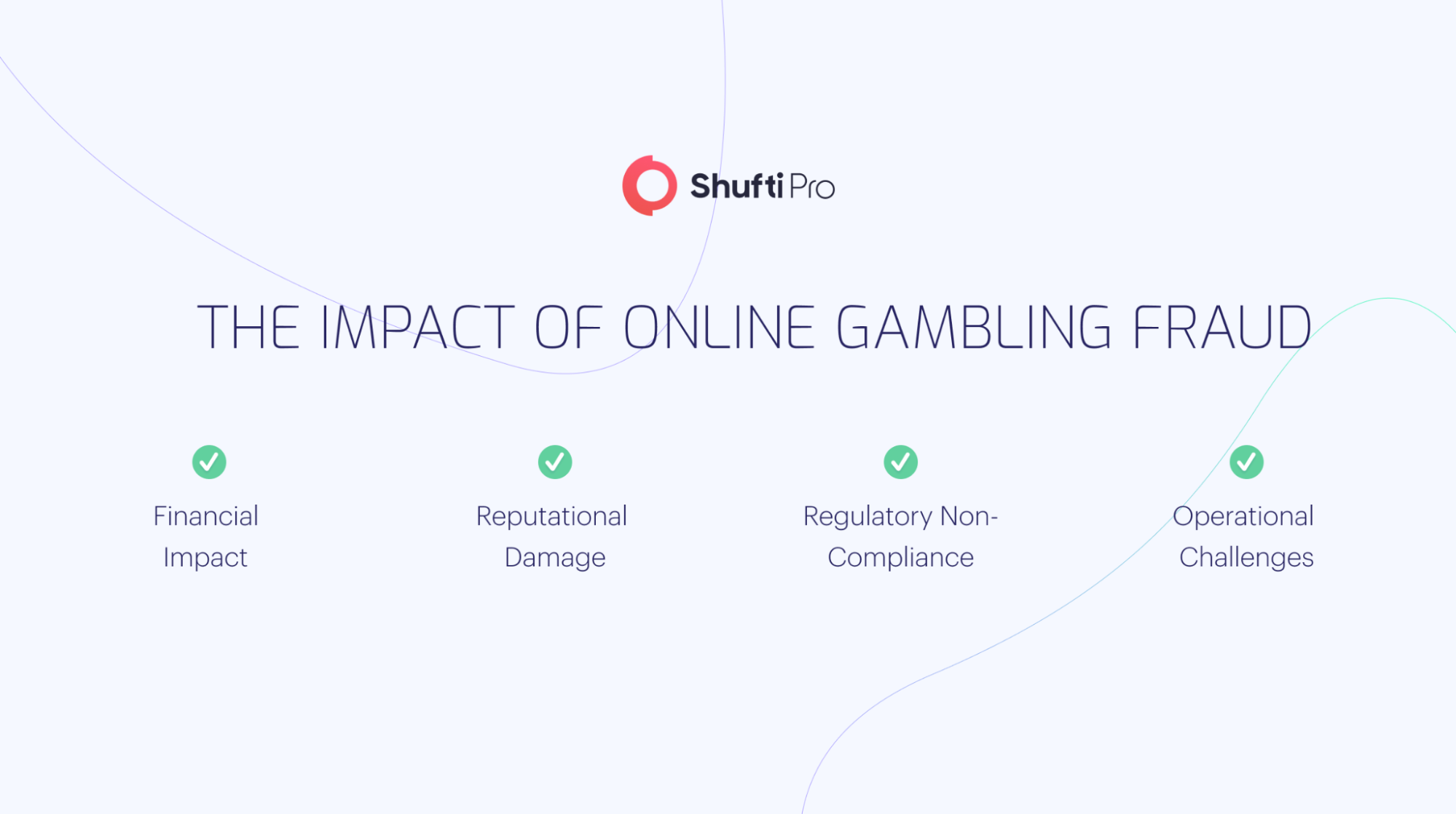Anti-Money Laundering (AML) Screening | Combat Online Gambling Scams Effectively

Online gambling has seen significant adoption in the past few years because of the convenience, variety of games, and social interactions it provides to users. With recent technological advancements, users can now gamble from the comfort of their homes and access global gambling platforms easily. Taking Canada as an example, the online gambling industry is predicted to reach a market size of US$138.10 billion by 2028, growing at a CAGR of 6.51% between 2024 and 2028. This year alone, Canada is projected to have the highest-ever recorded user penetration rate of 48.6% in the online gambling market.
It is of utmost importance to take note that regulatory authorities, including the UK’s Gambling Commission, strongly advise against indulging in gambling due to the substantial risks that are inherently associated with it. Additionally, over 20% of compulsive gamblers have been reported to file for bankruptcy as a direct result of their gambling losses. The incidence of online gambling fraud has been increasing in recent years, and it is responsible for a substantial portion of the financial losses reported by online gamblers. To perpetrate these crimes, cybercriminals utilize a range of techniques to exploit online gambling platforms, including multi-accounting, bonus abuse fraud, chargeback fraud, and identity theft.
What is Gambling Fraud? A Brief Overview
Online gambling poses a substantial risk of fraud and gambling, similarly experienced by many other online industries that deal with large quantities of money and transactions on a daily basis. Cybercriminals can infiltrate any online gambling platform and conduct fraud by subjecting individuals involved in bets to extraction formats ranging from phishing to the direct proliferation of assets. In traditional gambling fraud cases, cybercriminals often target online gambling service providers rather than individuals, as high-volume transactions attract both professional and amateur scammers.
Online gambling platforms are a primary target of cybercriminals as they are accessible and have open cash pools with visible openings for legitimate users. As these platforms exist on Web 2.0, conventional phishing techniques and backdoor creation still work effectively and allow criminals to commit fraud. Keeping a holistic view of online gambling scams is a crucial matter, as the monetary amounts involved in this context are substantial. Implementing effective measures to avoid fraud gambling is imperative, as it can cause significant financial damage to both individuals and organizations.

A Deep Dive into Gambling Scams and Fraud: The Most Common Techniques
Gambling fraud and scams are multifaceted practices as they target a broad consumer base along with the gambling service provider and pose complex issues. As such, business owners and individuals in this industry must understand the intricacies of these scams.
-
Rigged and Fake Gambling Platforms
Fraudsters accessing an online gambling platform may manipulate the algorithms to generate fake results. Scammers sometimes create fake gambling sites that mimic legitimate ones and encourage users to place bets on them. These platforms offer lucrative bonuses, guaranteed wins, and stakes to users, which are aimed at ripping them off. Additionally, criminals may give false signals to players by impersonating themselves as genuine sources. Favored outcomes generate more bonuses for criminals, ultimately leading to greater profits and winning rates.
-
Multi-Accounting
Some gamblers who intend to commit fraud utilize multi-accounting to secure more wins. A fraudster may use stolen information to create hundreds of accounts and rig a game in their favor. Once a scammer secures multiple accounts, multiple bets are placed in a pre-planned algorithm that aims to tilt the winning stakes in the fraudster’s favor. Detecting fake accounts of a single user is a significant part of online gambling fraud prevention and requires continuous monitoring and robust identity verification.
-
Account Takeovers
Another significant aspect of online gambling fraud is account takeover. Fraudsters can access an account by stealing login information and subsequently taking control of the account. Online gamblers with high win rates, bonuses, and account balances are a significant target for these individuals, as they promise higher financial potential. In this instance, criminals use phishing emails and cold texts to get unauthorized access to a user’s gambling account by extracting their credentials.
-
Bonus Abuse and Ponzi Schemes
A major chunk of scammers targeting the online gambling sector also utilize bonus abuse, a scamming tactic that leverages loopholes or bonus terms to gain unfair advantages over other individuals or manipulate their wagering requirements to withdraw funds without fulfilling legitimate conditions. Moreover, Ponzi schemes are also utilized to deceive legitimate users in a gambling space. Deceptive gambling schemes promising high returns based on gambling winnings are used to lure players in, but they ultimately result in financial losses when the scheme collapses. This directs all the winnings and bonuses towards the scammer and allows them to secure significant finances without getting caught.
-
Gnoming and Chip-Dumping
Gnoming is the act of using multiple-accounts “gnomes” to control a game. A cybercriminal proliferates the game using gnomes and makes the other players lose by tactically placing the moves of the fake accounts. The primary purpose of this tactic is to make the other players lose and redirect all the winnings to the perpetrator. Conversely, chip-dumping is typically used to tamper with the leaderboard, tournament standings, or final results. Through inter-account chip transfers, criminals can make sure that one account gains a sizable chip stack without having to earn it through honest gameplay.
The Threat of Money Laundering in Online Gambling
Criminals can exploit online gambling platforms as a means to conceal the proceeds of money laundering, where funds acquired through legal sources are cleansed to make them usable. The median loss for money laundering offenses in the US was $301,606, with 20.3% involving loss amounts of $40,000 or less and 22.0% involving loss amounts greater than $1.5 million. The virtual nature of these platforms and their freedom to conduct high-volume transactions make online gambling platforms an ideal venue for money launderers to launder money. Given these factors, businesses involved in online gaming need to remain vigilant and take adequate measures to prevent and detect money laundering activities on their platforms.
A criminal can deposit the proceeds of illegal activities on online gambling platforms by utilizing methods such as structuring and smurfing. These methods allow criminals to deposit money in packets that are just below the reporting cap, allowing these assets to go unnoticed by regulatory bodies. The gambling proceeds are then created when these assets are used for gambling activities. The gambling proceeds are then created when these assets are used for gambling activities. These assets are then converted into clean money by being withdrawn in small amounts through cryptocurrency or bank transfers, further concealing the assets.
Online Gambling Fraud Prevention with Shufti
To avoid money laundering in the gambling sector, robust identity verification solutions should be integrated for secure transactions. Businesses need to ensure that they stay aware of fraud attempts and potential scams because, if left unchecked, they can deal significant financial damage to a business. Online casinos often fail to prevent money laundering due to weak AML compliance and identity verification programs.
Shufti provides effective AML screening, identity verification, and gambling compliance, which makes it an ideal choice for online gambling platforms. By using our solution, these platforms can avoid regulatory penalties and eliminate fraudulent entities with an unmatched accuracy of 99%. Our highly configurable solution can be integrated with any business platform globally. It supports more than 240 countries, making it a versatile and reliable choice for businesses worldwide.
Discover the benefits of AML screening solutions for gambling operators and platforms today with Shufti IDV.

 Explore Now
Explore Now













